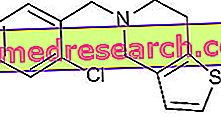Related articles: Alzheimer's disease
Definition
Alzheimer's disease is the most common cause of progressive dementia (a state of mental deterioration that leads to a gradual loss of intellectual faculties such as to interfere with common daily activities). In Alzheimer's disease, which typically arises around middle age or later, a degenerative process is established that progressively destroys brain cells and is still unknown to cure.Most common symptoms and signs *
- abulia
- Aphasia
- Aggression
- Hallucinations
- anguish
- Anosmia
- Apathy
- Apraxia
- Asthenia
- Impulsive behavior
- Confabulation
- Seizures
- Delirium
- Dementia
- Depression
- Difficulty concentrating
- Language difficulties
- Erectile dysfunction
- Bladder dysfunction
- Temporal and spatial disorientation
- Mood disorders
- ecolalia
- undernourishment
- myoclonus
- Memory loss
- Loss of memories
- Mood swings
- Confusional state
Further indications
As anticipated, Alzheimer's disease is a progressive disease. This means that in the early stages of its development the symptoms are very blurred and tend to worsen over the years. The symptomatological onset generally includes frequent loss of memory and confusion. The amnesia caused by Alzheimer's disease leads the individual to repeat gestures or things done a few hours earlier, to continually forget commitments and appointments, to the point of forgetting the names of family members, close friends and important events of the past. Other typical symptoms are the loss of abstract thought and the ability to calculate, read, write, logic, judgment and space-time orientation (with difficulty in recognizing even familiar places).



